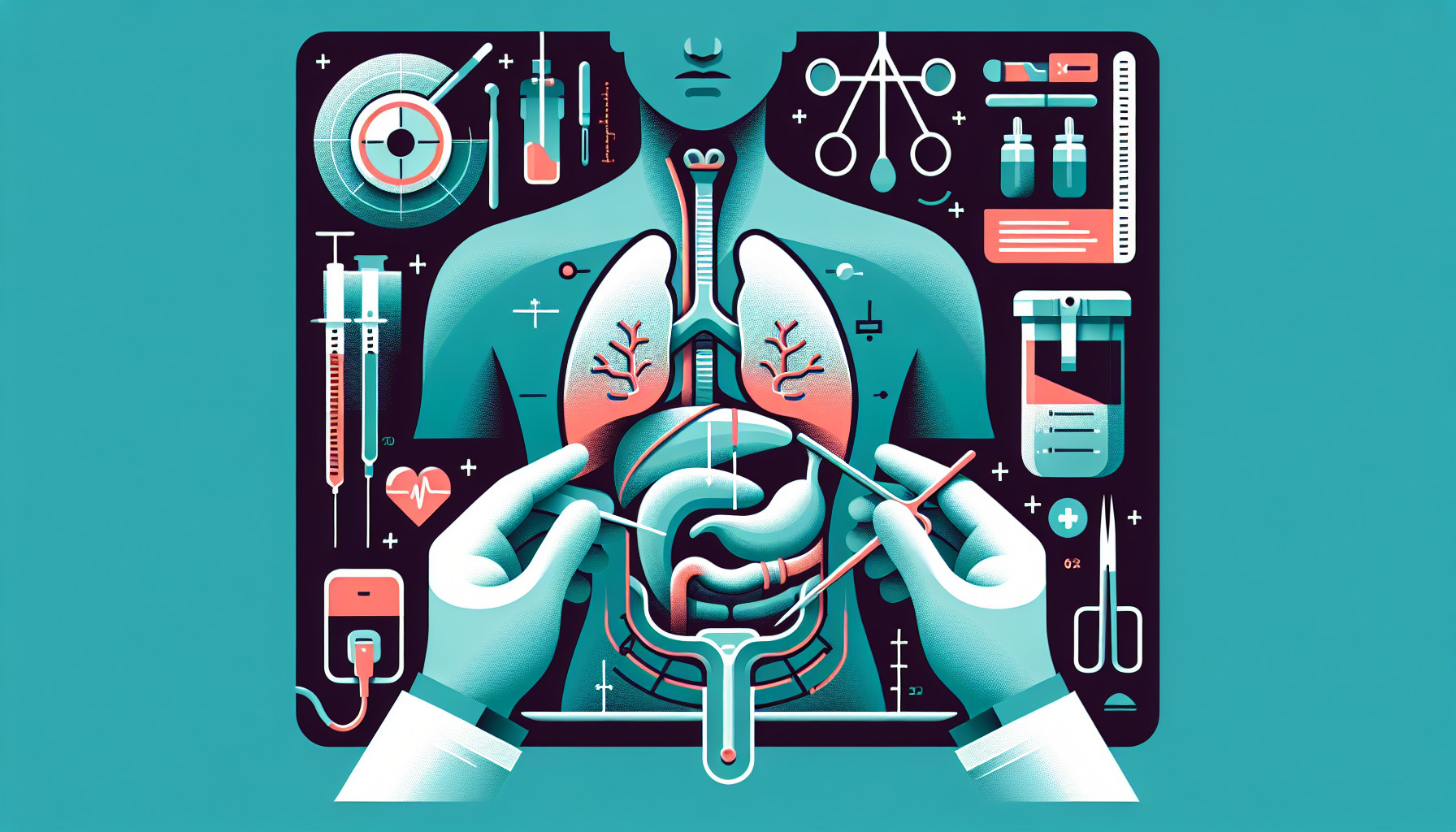Our Summary
This research paper discusses transplanting whole pancreases and pancreatic islets (groups of cells in the pancreas that produce insulin) as a treatment for a specific group of diabetes patients. This is mainly done for patients with type 1 diabetes who frequently experience extremely low blood sugar or have kidney failure that needs a kidney transplant.
The decision to perform a pancreas transplant or an islet transplant depends on the availability of pancreases or islets, as well as the individual patient’s characteristics and treatment goals. Pancreas transplant is generally done with a kidney transplant, but in some cases where the patient’s type 1 diabetes is very unstable, a pancreas transplant alone might be considered. Although it can effectively restore the patient’s ability to produce insulin, a pancreas transplant is a major surgery and involves significant risks, including the need for medications to suppress the immune system to prevent rejection of the new organ.
On the other hand, islet transplantation is a simpler procedure, typically performed for patients with unstable type 1 diabetes who frequently experience severe low blood sugar. It is effective in treating low blood sugar, but to achieve insulin independence, more than one pancreas donor might be required.
However, both procedures are limited by the shortage of deceased donors. One potential solution to this problem is the use of pigs as a source of islets. The study found that pig islets can successfully treat diabetes in non-human primates when the right immune-suppressing conditions are in place, raising hope that this could eventually be a viable treatment option for a larger number of diabetes patients in the future.
FAQs
- Who are the primary candidates for pancreas and islet transplantations?
- What are the main risks associated with a pancreas transplant?
- What are the potential benefits and limitations of islet transplantation?
Doctor’s Tip
One helpful tip a doctor might tell a patient about pancreas transplant is to carefully weigh the risks and benefits of the procedure, considering factors such as the patient’s overall health, potential complications from surgery and immunosuppression, and the expected benefits in terms of improved blood sugar control and quality of life. It’s important for patients to have a thorough discussion with their healthcare team to ensure they have all the information they need to make an informed decision about whether pancreas transplant is the right option for them.
Suitable For
Patients who are typically recommended for pancreas transplant include those with type 1 diabetes mellitus complicated by recurrent severe hypoglycaemia or renal failure requiring kidney transplantation. These patients may also be candidates for simultaneous pancreas and kidney transplant. Patients with particularly labile type 1 diabetes may be considered for a pancreas transplant alone. Islet transplantation is usually recommended for patients with labile type 1 diabetes with severe hypoglycaemia. Both pancreas and islet transplantation are limited by a shortage of deceased donors, but porcine islets show promise as a potential source for transplantation in the future.
Timeline
Before pancreas transplant:
- Patient is diagnosed with type 1 diabetes mellitus, complicated by recurrent severe hypoglycaemia or renal failure requiring kidney transplantation.
- Patient may be considered for pancreas transplant alone if they have particularly labile type 1 diabetes.
- Patient undergoes extensive evaluation to determine eligibility for transplant.
- Patient may be placed on waiting list for deceased donor pancreas or islet transplantation.
After pancreas transplant:
- Patient undergoes major surgery to receive pancreas transplant, which is often done simultaneous with kidney transplant.
- Patient is placed on immunosuppressive medications to prevent rejection of the transplanted organ.
- Patient is monitored closely for signs of rejection or complications.
- Patient experiences restoration of insulin independence and resolution of hypoglycaemia.
- Patient may require ongoing medical care and monitoring to ensure the success of the transplant.
What to Ask Your Doctor
- Am I a suitable candidate for a pancreas transplant?
- What are the potential risks and complications associated with a pancreas transplant?
- How long is the recovery process after a pancreas transplant?
- Will I need to take immunosuppressive medications after the transplant, and what are the potential side effects?
- What is the success rate of pancreas transplants in patients with my medical history?
- How will a pancreas transplant affect my diabetes management and overall health?
- Are there any alternative treatments or therapies I should consider before opting for a pancreas transplant?
- What is the difference between a pancreas transplant and an islet transplant, and which option may be more suitable for me?
- How long will the transplanted pancreas function effectively, and will I need additional transplants in the future?
- How often will I need follow-up appointments and monitoring after the transplant surgery?
Reference
Authors: Bellin MD, Dunn TB. Journal: Diabetologia. 2020 Oct;63(10):2049-2056. doi: 10.1007/s00125-020-05184-7. Epub 2020 Sep 7. PMID: 32894315
